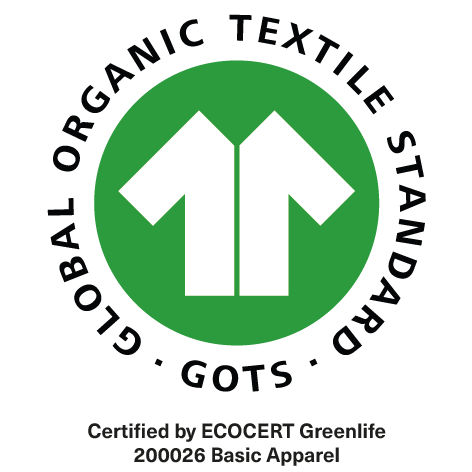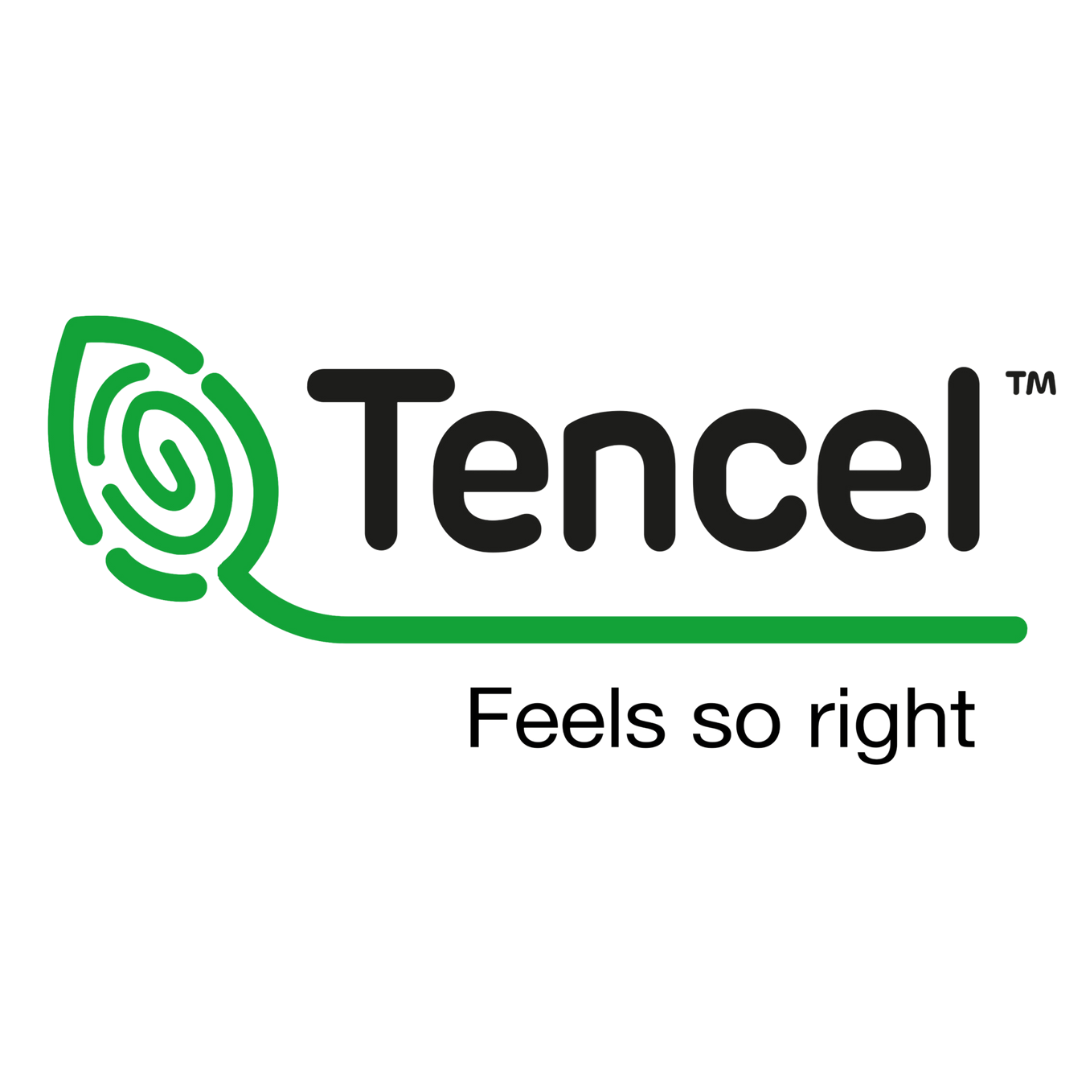Our Goals
We have asked all our suppliers to operate in accordance with our code of conduct, which requires them to work towards aligning with the UN’s 17 Sustainable Development Goals for environmentally responsible development.
Currently, certified materials make up 90% of our product range.
What are the certifications?
These small icons are increasingly appearing on websites, care labels, hangtags, and packaging. But what does it actually mean when your clothing is certified? Is it trustworthy? And how can it be helpful for you?
All our styles are created with a focus on the environment and a CO2-neutral future in mind. We advocate for being a low impact brand, which overall means higher quality, timeless designs, responsible production, and reduced consumption.
We are GOTS Certified
For the products that are GOTS certified, we offer an organic production process, consisting exclusively of textiles that contain at least 70% organic fibers.
When we choose GOTS-certified organic cotton, it is because conventional cotton production is associated with a number of challenges. Often, it is difficult to obtain information about where and how the cotton is grown and processed, and it is also difficult to gain insight into the social conditions under which it has occurred.
Conventional cotton is also the world’s most pesticide-treated crop, with significant consequences for local biodiversity and water ecosystems.
In contrast, GOTS-certified cotton is grown according to organic principles, with detailed requirements to minimize waste and emissions, regulate the use of chemicals and dyes, ensure textile durability, and maintain fair social production conditions throughout the entire value chain.
Tencel & Eco-Vero
Tencel and Eco-Vero are produced by the Austrian company Lenzing, and are actually the names of two trademarks that each represent a better alternative to traditional viscose.
Like traditional viscose, they are made from regenerated plant fibers, but whereas production in the past has been associated with a number of challenges, such as harsh chemicals, water pollution, and lack of fiber traceability, Lenzing has managed to develop a closed-loop system where solvents and water are recycled, and fibers are sourced from certified sustainable forestry.
Responsible wool
Wool is a fantastic material with a wide range of beneficial properties, but unfortunately, not all wool is produced with animal welfare in mind.
Our wool comes from certified responsible farms, where the well-being of the animals is the focus. This means, among other things, that the animals must be kept free from hunger, thirst, discomfort, fear, pain, injury, and disease, and they must have the freedom to express natural behaviors.
Therefore, practices such as mulesing are not allowed. Additionally, there are requirements for the management of the agricultural land the animals live on, including the protection of soil health and biodiversity.

Recycled materials
Traceability and responsibility are crucial to us, which is why we only use recycled materials for which we can obtain detailed documentation. In addition to ensuring that the fibers are truly recycled, it is important for us to stand behind the textiles' health, environmental impact, and social profile, including responsible working conditions, hours, and wages, as well as the possibility of collective bargaining.
We also only use synthetic recycled materials, such as recycled polyester, when we believe it can fulfill a functional need.
Your comfort and user experience are key to whether our styles have a long and successful life in use.

Feedback
If you have a concern or complaint regarding unethical behavior from Basic Apparel, our employees, or partners, including our certified products, we would very much like to hear from you so that we can investigate the matter further.
You can contact our complaints officer, Ajlin Zejnelovska, at complaint@basicapparel.dk.
Due diligence
Read our due diligence here: due diligence



